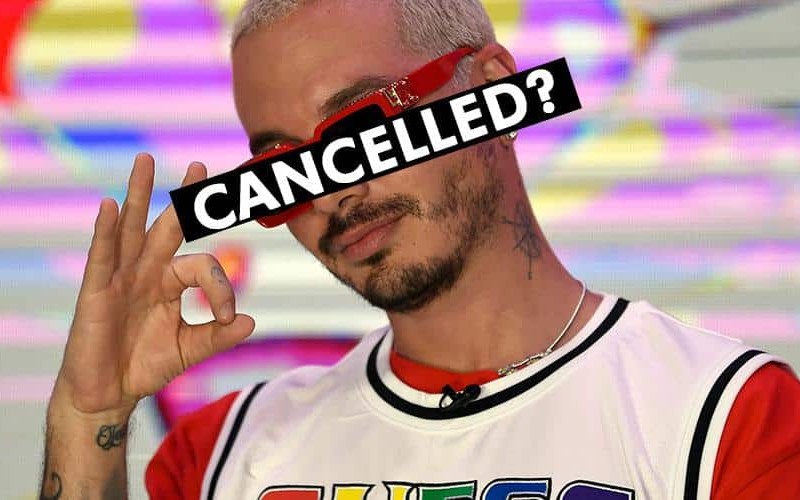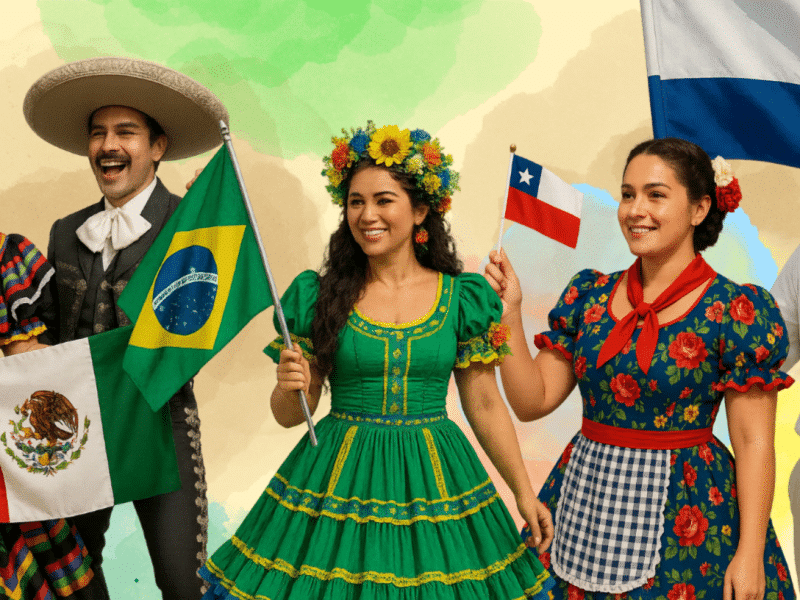Dear J Balvin, We’re Trying to Enjoy Your New Album Pero…
J Balvin just released a new album and a couple of videos alongside it. I watched the video for Perra and immediately regretted it.

This story has been updated since its original post on September 27, 2021, to reflect the removal of Balvin’s video.
J Balvin just released a new album and a couple of videos alongside it. I watched the video for Perra and immediately regretted it. It opens up to a scene of a Black woman in a maid uniform complaining and cleaning, then around 1:11, we are treated to a scene of Balvin walking Black people on leashes like dogs. Shocked is an understatement.
To more accurately describe it, I felt a multitude of things at the same time; shock, disgust, horror, shame. It was very clear that the “dogs” and “animals” in the video were all darker-skinned people with most of the “lower class” characters also cast with Black people, while the lighter-skinned people were characters like the “Profe” in the opening scene and others.
Apparently, the broader community had many of these same reactions as Balvin’s video was quietly removed on Sunday, October 18th from his YouTube channel. Neither YouTube, Balvin, or Tokischa have commented on the removal, but as laid out below, we can assume it had everything to do with the disturbing and highly offensive nature of the video.
Sadly, this is not the first time Balvin has expressed colorism and anti-Black sentiments. He has quite a record of demonstrating that he is very much in tune with the benefits of his white privilege in his home country of Colombia which also has the 2nd largest population of Afro-descendants in Latin America, second only to Brazil.
But what else has Balvin done? Read on…
The “Tego Calderon isn’t Latino” incident
In an interview, he was asked about how he got started as a reggaeton artist. He mentioned that it wasn’t until he knew that Daddy Yankee was actually white and not Black that he started dreaming about it. He stated that Daddy Yankee was a Latino like himself, implying that Tego’s Blackness precluded him from also being Latino.
Rihanna is ‘just a girl to have fun with’
He played fuck, marry and kill with a Brazilian interviewer, where he got Rihanna as an option. He said he chose fuck for her because she wasn’t “a good woman to marry” and only good for fooling around with. People had things to say.
Here’s our take on Mental Health issues within the Latinx community
Despite that, the Latinx community has the ability to walk and chew gum at the same time. We can give credit where credit is due and also call out our musical faves when they are clearly showing up in the wrong way. Balvin must not only address and apologize for his anti-Blackness as he has done in the past, but he has to do the work to rid that of his system. COVID isn’t the only virus in the room; racism is too and Balvin has only recovered from one of them.
In Balvin’s own words in response to his Black Lives Matter fiasco on June 1, 2020, he says, “After taking time to speak to those close with me, I am educating myself on the deep significance and horrifying history that is the root of the #blacklivesmatter movement.”
Bro, how much time do you need?




